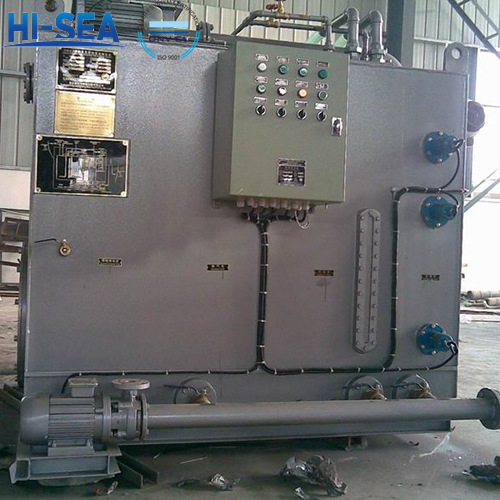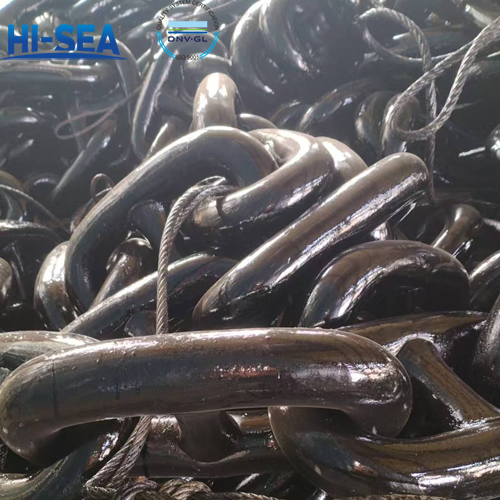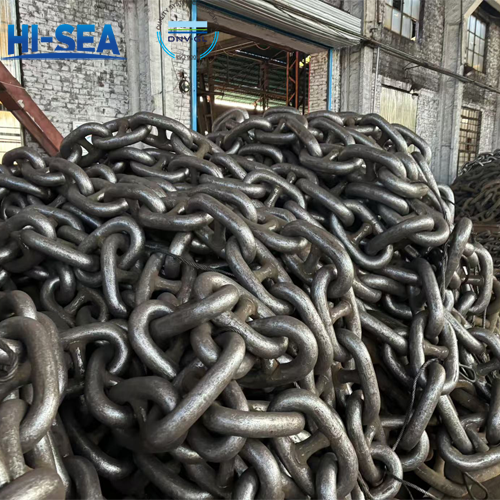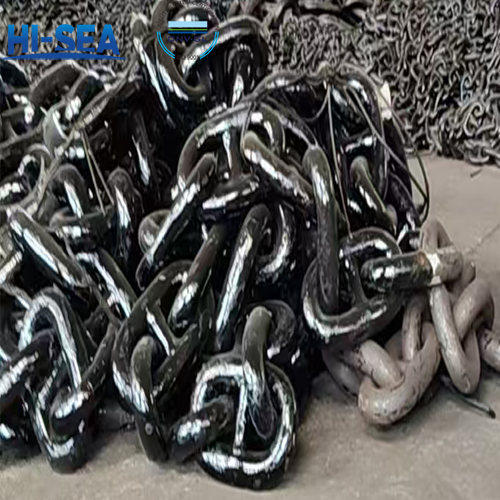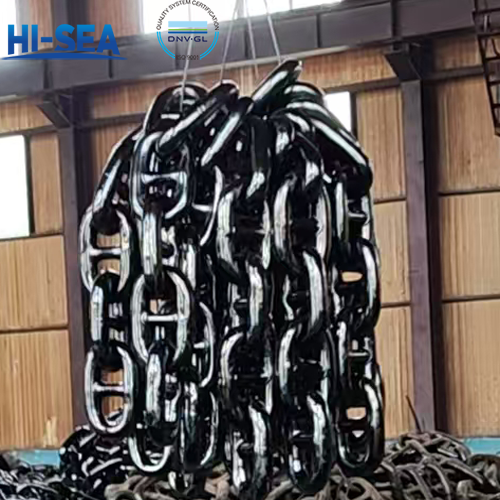
Structure and Treatment Flow of Marine Sewage Treatment Plant
With the unprecedented development of shipping industry and Marine development, the pollution of Marine environment is becoming more and more serious, and human beings pay more and more attention to the protection of Marine environment. The domestic sewage produced by ships in the course of shipping is a serious source of mobility pollution to the waterway waters. Therefore, Marine sewage treatment plant came into being, aiming to protect the water quality of waterways and other waters by strengthening the treatment of Marine domestic sewage. This article will discuss the main structure and treatment process of Marine sewage treatment plant, hope to help you.
Overview
What is a Marine sewage treatment plant:
Marine sewage treatment device is a kind of equipment specially used for treating the domestic sewage generated on ships.
During the operation of the ship, the daily life of the crew will produce sewage, including excrement, washing water, etc. If these sewage are directly discharged into the ocean, it will cause serious pollution to the marine environment. The main function of the marine sewage treatment device is to treat these sewage to reduce the harm to the marine ecology.
It usually removes pollutants such as organic matter, suspended solids, and pathogens in the sewage through a series of physical, chemical, and biological treatment processes, such as filtration, sedimentation, and biodegradation, so that the treated sewage can be discharged or further processed after reaching the relevant emission standards. Different types of marine sewage treatment devices may vary in specific principles and structures, but the purpose is to achieve effective treatment and environmental protection of ship domestic sewage.
Classification of Marine sewage treatment plant:
Marine sewage treatment plant can be roughly divided into three types according to the working principle: biochemical method, physicochemical method, and electrolysis method:
Biochemical method: Utilizing the traditional activated sludge method in biochemistry, under the condition of sufficient oxygen supplied by a blower, the bacteria species are cultivated into activated sludge through domestic sewage, making it contact with the sewage, and with the help of the biochemical action of the activated sludge, the organic matters are removed to reduce the BOD5 (E. coli) value. At the same time, the activated sludge can also adsorb and agglomerate solid suspended matters and oxidize them into inorganic substances. This method is the most common way of domestic sewage treatment on ships.
Physicochemical method: Treating the sewage through physical and chemical methods. It usually includes steps such as filtration, sedimentation, adsorption, and disinfection to remove suspended matters, organic matters, and pathogens in the sewage.
Electrolysis method: Utilizing the electrolysis principle, in the electrolytic cell through the action of electric current, the oxidation-reduction reaction of organic and inorganic matters in the sewage occurs to achieve the purpose of purifying the sewage. This method has a better treatment effect, but the cost is relatively high.
The structure of marine sewage treatment plant:
Sewage collection tank: Collect domestic sewage.
Aeration system: Provide oxygen to promote the activity of microorganisms.
Biological reaction area: Contains various microorganisms for degrading organic matters.
Sedimentation area: Make the solid substances in the treated sewage precipitate and separate.
Disinfection device: Disinfect the treated sewage.
Control system: Used to control the operating parameters of the entire treatment process.
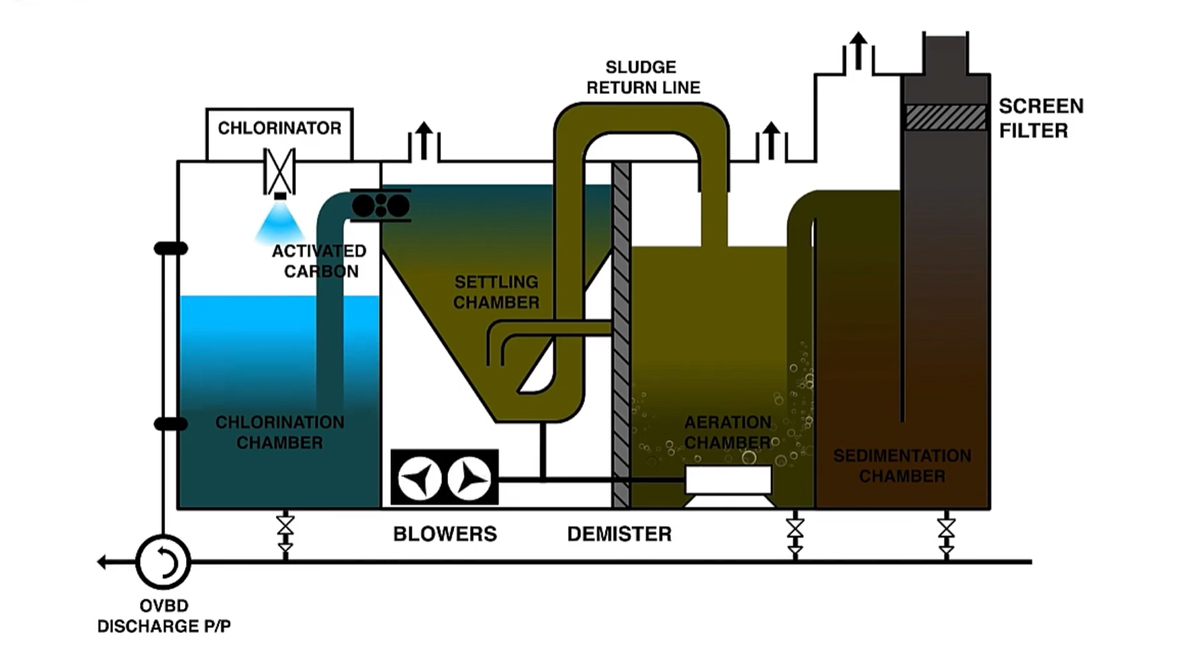
Basic treatment flow of Marine sewage treatment plant:
Domestic sewage first enters the sewage collection tank.
The sewage is pumped into the biological reaction area, and under the oxygen environment provided by the aeration system, microorganisms begin to decompose the organic matters in the sewage.
The sewage after biological treatment enters the sedimentation area, and the solid substances precipitate.
The relatively clear sewage on the upper layer enters the disinfection device for disinfection treatment to remove harmful substances such as bacteria.
Finally, the treated sewage that meets the discharge standard is discharged or further processed.
It should be noted that there may be certain differences in the specific structure and treatment process among different types and models of marine domestic sewage treatment devices.
Conclusion:
Congratulations on reading the whole article! I believe you must have a deep understanding of the structure and treatment process of Marine sewage treatment plants.
If you still have questions, or have plans to purchase a Marine sewage treatment plant, be sure to contact us. At the same time, you can also visit our Marine sewage Treatment plant home page for more in-depth understanding, thank you again for browsing!

